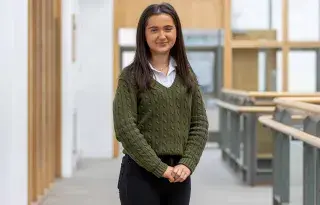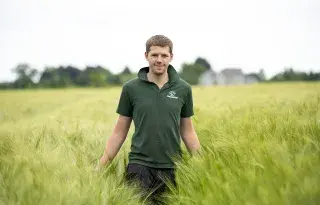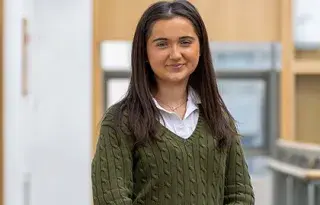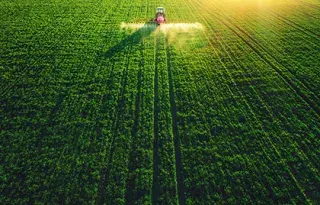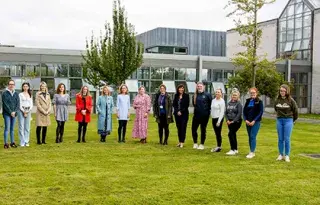BSc (Hons) in Sustainable Agriculture
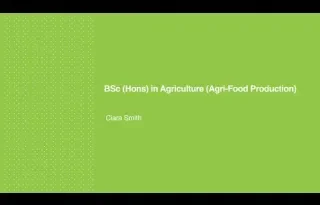
Search to find a different course
Course Overview
This collaborative course is delivered jointly with Teagasc, Ballyhaise Agricultural College, and DkIT, with students attending both campuses weekly. In Years 1 and 2, students will cover a wide range of common agriculture topics including crop and livestock production, precision farming, food science and farm business planning, analysis, and legal issues. In the final 2 years of this course, students will develop a deep understanding of modern agricultural science with a strong focus on food production and processing, quality assurance and safety, business and economic management, and environmental science.
This course will specifically develop skills and knowledge in the areas of animal and crop production, animal husbandry, genetics and biosecurity, health and safety, agricultural mechanisation, financial and business management, entrepreneurship and innovation, environmental protection, and the production and processing of safe, quality-assured food.
Year 1 and Year 2 are split between DkIT and Ballyhaise Agricultural College with a free bus provided for students from Ballyhaise to DkIT. 1st and 2nd year students are strongly advised to base themselves in the vicinity of Ballyhaise College. Year 3 and Year 4 are mainly in DkIT with some classes in Ballyhaise Agricultural College.
What makes this course different
In Conjunction with Teagasc
This collaborative course is delivered jointly with Teagasc, Ballyhaise Agricultural College and DkIT.
Work Placements in Ireland or Abroad
Students undertake 2 work placements on this course with the opportunity to complete the Year 3 placement in Ireland or overseas including New Zealand, the US, or Europe.
Students can also avail of Erasmus opportunities during year 3 of the programme.
'Green Cert' Qualification
Graduates will meet the requirements of a qualified farmer for the purposes of all Revenue and Department of Agriculture schemes, traditionally known as a ‘Green Cert’ qualification.
Understanding the Industry
Agriculture is one of the Ireland’s most vital and influential industries and is a key driver of the Irish economy. There is an ever-increasing demand for forward-thinking, innovative, and qualified people within the industry to meet the ongoing challenges and opportunities across all aspects of agriculture; from global production, agricultural technology, sustainable agriculture, and development, applied food processing and new policy developments.
Career Opportunities
Graduates will have knowledge and appreciation of national and international policy and legislation and will have excellent communication skills, research competence and the ability to respond to the challenges of larger scale, market-led production, alternative rural enterprise and environmental sustainability. Sample job opportunities include, various roles in QA in the food and manufacturing industry, auditors or inspectors in the agri-food sector, rural entrepreneurs, research, food analysts and product development scientists.
Future Careers:
- Postgraduate Research positions
- Agricultural Advisor with consultancy or state body
- A commercial Farmer or Farm Manager
- Technical Sales Role
- Analytical or Research Scientist in the Agri-Environmental Management Sector
- Quality Manager or Production Supervisor in the Food Industry
- Manufacturing - Food or Beverages
- Auditors or Inspectors in the Agri-Food sector
- Rural entrepreneurs (e.g., artisan food products, etc.)
- Production Supervisors and Analysts in the Food Processing Sector
- Food Product Development Scientists
Graduates work at
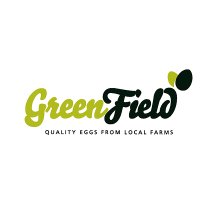
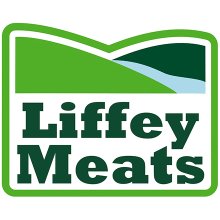
Course Delivery and Modules
Year 1 and Year 2 students are strongly advised to base themselves in the vicinity of Ballyhaise College.
- 1st Year: Students are based in Ballyhaise Agricultural College in Cavan, where classes take place on Mondays and Tuesdays. Classes are held in DkIT on Wednesdays and Thursdays. A free bus is provided for students from Ballyhaise to DkIT.
- 2nd Year: Students are based in Ballyhaise Agricultural College in Cavan, where classes take place from Mondays to Wednesdays. Classes are held in DkIT on Thursdays and Fridays and a free bus is provided for students from Ballyhaise to DkIT.
- 3rd Year: Students are based in DkIT on Mondays, Tuesdays and Wednesdays and in Teagasc, Ballyhaise Agricultural College on Thursdays and Fridays.
- 4th Year: Students are based in DkIT from Monday to Thursday and in Teagasc, Ballyhaise Agricultural College on Fridays.
- Animal and Crop Science
- Agricultural Mechanisation and Precision Farming
- Economics and Farm Records
- Physics through PBL and Maths
- Biological and Chemical Sciences
- Farm Facilities and Machinery
- Farm Management and Accounting
- Microbiological and Environmental Sciences
- ICT Applications and Research Skills
- Biochemistry and Animal Nutrition
- Quality Assurance
- Grassland and Crop Production
- Statistical Methods for Agriculture
- Farm Business Planning, Analysis and Legal Issues
- Dairy Production
- Food Science
- Health and Safety and Farm Placement
- Beef and Sheep Production
- Soil Science
- Financial Management Systems
- Research Methods and GIS
- Sustainable Entrepreneurship and Teamworking
- Processing & Farm Quality Management
- Food Processing, Analysis & Production Management
- Pigs and Poultry Production
- Agriculture in the Environment
- Agricultural Production & Management Systems
- Internship
- Environmental Management in the Agri-Food Sector
- Agricultural Policy and Professional Practice
- Agri-Science Project
- Herd Health and Biosecurity
- Value-Added Agri-Food Product
- Sustainable Farm Production Systems
- Sustainable Rural Development
- Genetics & Genomics in Agriculture
- Lean: Principles & Methodologies
Work placement
There are two work placements in Year 2 and 3 of this course.
- Year 2 placement is usually on a Teagasc Host Farm, and it runs for 8 weeks.
- Year 3 placement runs for 12 weeks and can be in an agri-food industry or large farming enterprise, this work placement can be completed in Ireland or overseas including New Zealand, the US, or Europe.
Professional Accreditations
On completion of this course, students will also meet the requirements of a qualified farmer for the purposes of all Revenue and Department of Agriculture schemes, traditionally known as a ‘Green Cert’ qualification.
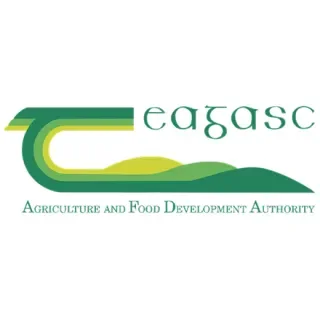
Education Progression
Graduates can progress to the MSc in Sustainable Food Technology and Innovation, the MSc / Postgraduate Diploma in Agricultural Biotechnology or the Postgraduate Diploma in Sustainable Food Technology and Innovation.
MSc / Postgraduate Diploma in Agricultural Biotechnology
Postgraduate Diploma in Sustainable Food Technology and Innovation New course
MSc in Sustainable Food Technology and Innovation New course
Fees and Funding
Please find information on fees and funding here: www.dkit.ie/fees
Entry requirements
Standard entry requirements apply. There are no special entry requirements for this course.
- Standard Requirements for Leaving Certificate Applicants
- Standard Requirements for UK/NI Applicants
- Standard Requirements for QQI-Further Education Applicants
- Mature Applicants: Minimum of 23 years of age on January 1st of year of application.
- International Applicants: International students must have a minimum level of English equivalent to IELTS 6.0 A Leaving Certificate or A-level science subject is not required but is recommended.
Recent CAO points
How to apply
Apply on CAO
All standard entry first-year applicants must apply for entry through the CAO. See Important application dates for CAO and information for specific applicant types below:
Advanced Entry & Transfer Applications
Advanced Entry is for applicants who have previous educational achievements and/or work experience and want to be considered for direct entry into year 2, 3, or 4 of a course. This includes students looking to transfer to DkIT from another Higher Education provider.
Ask us a Question
If you have a question about the BSc (Hons) in Sustainable Agriculture please ask it below and we will get back to you.
Course News
View all NewsDisclaimer: All module titles are subject to change and for indicative purposes only. All courses are delivered subject to demand and timetables are subject to change. Elective Module options will only run subject to student numbers. The relevant Department will determine the viability of each elective module option proceeding depending on the number of students who choose that option. Students will be offered alternative elective modules on their programme should their preferred elective option not be proceeding. Award Options for Common Entry Programmes: The relevant Department will determine the viability of each award option proceeding depending on the number of students who choose either option. If the numbers for one of the Award options exceed available places, students for this option will be selected based on Academic Merit (highest grades).
